Positive Psychology Theory and Positive Parenting: Why It Works and Makes Us Happy
• Finally a broader psychological perspective ...
• See how positive psychology theory expands the framework of traditional psychology!
• Read about the refreshing positive psychology approach that is also interested in:
- 'What is happiness psychology and how does it work?' ...
- Rather than just the traditional 'what's wrong and why?'
• Satisfy your curiosity about the inspiring influence of positive
psychology
in positive parenting!
Let's Test Your Perception of Traditional Psychology
You may not be aware of it, but most likely your idea of what psychology is, is only half of what it really is. This is provocative, I know, but please bear with me a little longer :-)
If you're up to it, let's put your approach to traditional psychology to the test. All you need to do is answer two very simple questions!
Ready? Okay, here we go:
- My first question: If I said to you that I was going to see a psychologist, what would you think would be the reason that?
- Your probable answer: Well, most likely you would think that I wasn't feeling well, that I had some sort of problem. Perhaps I was even depressed or traumatized, and therefore sought help in order to make life 'liveable' again.
- My second question: Now, what would you think if I told you I was going to see a life coach?
- Your likely answer: It would probably make you think that I was trying to make my life more fulfilling via self improvement - perhaps that I was trying to find my potential and achieve my goals.
I Was Right Wasn't I?
According to this test - if you answered the way I predicted you would - the focus of a psychologist or, if we expand it, traditional psychology, is curing mental illness. Helping people who are in pain to survive emotional chaos and mental entrapment and make life liveable again.
Don't get me wrong: This is a great ambition and lots of important cures have been found over the years because of this approach.
But the scientific focus on illness and pain - seeing life through a disease model - seems to have overshadowed that of happiness and joy. In fact, up until a few years ago, we knew very little of happiness psychology theory or positive psychology, scientifically speaking.
Alongside the gradual growth of the positive psychology approach, we have a coaching field that has had tremendous success and popularity.
I don't view coaching as applied positive psychology as such but the popularity of coaching may be seen as an expression of a desire to focus on what makes us more happy - on how we make life fulfilling rather than just liveable.
To some extent positive psychology theory was born to even out the scales - because some psychologists thought that a happiness psychology was entitled to just as much attention as an illness psychology.
And how very true that is!
Positive Psychology Is a Study of Happiness Psychology
Contrary to what people may think, positive psychology is not based on a deluded happiness philosophy that overlooks all the 'negative stuff'. Positive psychology is not superficial or naive and doesn't encourage escapism.
No, it is more true to see positive psychology as a complementary addition to more traditional psychology.
Positive psychology theory is a reminder not just to focus on:
- 'Repairing' weaknesses but also on building and nurturing strengths and abilities!
- Looking ahead instead to achieve goals and satisfaction rather than just looking back at trauma and stress!
- Finding out why something works instead of why it doesn't.
- What it takes to make life go from okay to great rather than just from bad to okay!
Here is a great little video that explains what positive psychology is:
Martin Seligman: The Father of Positive Psychology
As an accepted science positive psychology is very young. The founder of positive psychology, American psychologist Martin Seligman, actually presented this branch of psychology as late as in 1998.
Martin Seligman and other researchers of positive psychology theory present three different ways in which we as humans find fulfilment:
Positive Psychology Research:
- We Seek Three Kinds of Fulfilment
The Pleasant Life - The Good Life - The Meaningful Life
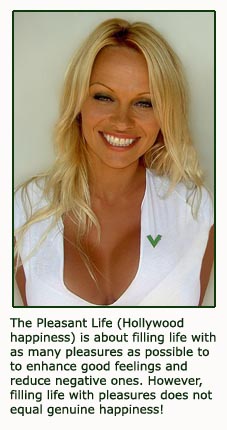
The Pleasant Life
Living The Pleasant Life is what Martin Seligman calls seeking the Hollywood happiness.
(See Martin Seligman's own definition here).
People who seek this type of happiness path strive towards having as many happy feelings and pleasures as possible.
Negative feelings are not welcome.
They follow enjoyable pursuits that provide them with feelings of pleasure and minimize feelings of negativity.
Living only The Pleasant Life may be called hedonic, or perhaps superficial!
The two other routes do not focus on happy feelings as such but on deep fulfilment and satisfaction:
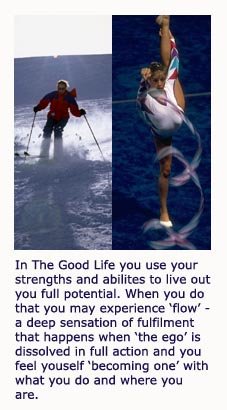
The Good Life
The Good Life is about knowing what you're good at and doing it.
When you do that, when you are deeply engaged in an endeavour where you use your skills to the fullest, you get to experience what Martin Seligman calls eudaemonia or what psychologist Mihaly Csikszentmihalyi has coined flow.
Basically flow is a state of consciousness where feelings, thoughts, concepts of time and place have been suspended.
All you are aware of is 'the now' - you're at one with what you're doing - for instance playing music, doing sports or having sex, just to mention a few examples.
There is no happiness feeling as such. In fact there are no feelings at all. And ironically, that feels really good!
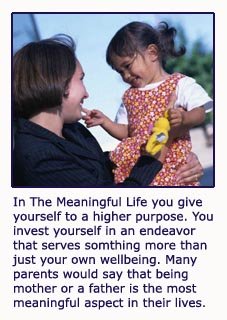
The Meaningful Life
In The Good Life you use your skills to the fullest, and get to feel the satisfaction of deep involvement in something.
In The Meaningful Life you also do your best, but not to experience flow as such, but for a higher purpose.
You 'give' yourself and what you do to something you believe in, something meaningful to you, something larger than just yourself.
According to Martin Seligman and this positive psychology research, it takes all three kinds of paths to live a full life.
If you want to watch Martin Seligman speak, you can see him talk about positive psychology research and the focus and aims of positive psychology in the video below.
Positive Parenting and Positive Psychology Focus on Potential and Strengths
If you asked Martin Seligman, 'What is positive psychology' He would first and foremost say that it is a science!
It's a psychological approach to what is happiness, how does it work and how do people create happy, good and meaningful lives.
Positive parenting is not a science but a philosophy. It's a parenting style that shares the same interest as positive psychology in its focus on potential, strengths and abilities as a way to create happy and meaningful lives.
Positive parenting is an approach focused on bringing out the best in kids focusing on the kids' own potential. (In fact, this is the same thing a coach does with his / her coachee.)
Positive Parenting Is a Mind Shift from Bad Behavior to Good Behavior
An 'old-school' parenting style traditionally focuses on bad behavior: A child learns what is right and wrong through his or her misbehavior.
I bet we can all see a mental picture in our mind of an angry parent scolding his or her 'naughty' child.
To put it provocatively, a typical old-school approach to parenting is 'beating' bad behavior with bad behavior.
In this way the parent's bad behavior is reproduced in the child.
Positive parenting goes the other way around. Just like positive psychology, positive parenting believes that fulfilment is found through cultivating that which we want and that which works.
So to get a happy and 'well-behaved' child the positive parenting philosophy holds that it is more efficient for the parent to be that which we desire (happy and loving) rather than that which we don't want our children to be (angry and unhappy).
In this way positive parenting may be seen as a way of applying happiness psychology or positive psychology.
The positive parenting approach is that you get what you are - the way you treat your child will in some way be reproduced by your kid and you'll get what you give!
Positive Parenting Believes that You Get That Which You Are
... So Why not be Tolerant, Patient, Loving, Respectful and Understanding?
The philosophy of positive parenting is that the more you are the 'good stuff' as a parent, the more you'll get it, too.
It's like a mirror effect. Our state of consciousness, our expectations of our child literally rub off on our child.
So if your child knows that he or she will mostly get your attention through bad behavior, bad behavior is what he or she will do to get your attention.
Or if your child senses that 'Mom expects me to be naughty by my refusing to go to bed, that is what I will do. I will do what I can to live up to Mom's expectations.'
Your Child Is a Living Copying Machine
It sounds cryptic, yes, but in a way your child is like a living copying machine, what you put in is what he or she lets out.
The way you deal with challenges and the way you respond to your child become the way your child learns to respond to you and to deal with challenges.
So find out what you want to give to your child and your child will do his or her best to give it back to you!
It's actually really that simple.
Your Positive Parenting Ally,
Birgitte

Want to stay in touch and get the latest news?
Sign up
for my free newsletter
Parent Coaching
- For Inner Peace, Clarity and a Deeper Connection to Your Child
 Being a parent can feel like a double-edged sword. Life with kids may feel like the greatest gift you have ever received, while at the same being hugely challenging, often leaving you confused, stressed and overwhelmed.
Being a parent can feel like a double-edged sword. Life with kids may feel like the greatest gift you have ever received, while at the same being hugely challenging, often leaving you confused, stressed and overwhelmed.
When we feel like this, we've lost touch with ourselves. We can't hear our own inner voice, and it's difficult to know what is 'right' for us and how to act.
I offer in-depth parent coaching to help you regain your balance and get back in touch with yourself. From a place of inner peace and clarity, your will find your own answers which will help you reconnect with your child from a place of unconditional love and acceptance.
Read more about my parent coaching here.
Where Would You Like to Go Next?
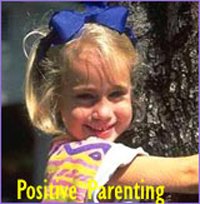 The Ultimate Positive Parenting Recipe: See the 5 Powerful Ingredients for Empowering Kids to Lead Happy and Conscious Lives! |
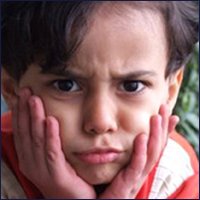 Typical Parenting Issue Resolved in 3 Steps: What Your Kid Wants, May not be What He or She Needs |
 The Power of Conscious Parenting: You're a Mirror: What You Give Is What You Get! |
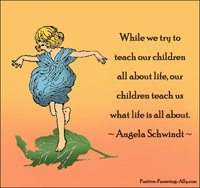 Quotes on Discipline High-Level Parenting Insights About Loving Unconditionally Beyond Discipline! |
 Conscious Parenting Discipline - The Simple Two Step Recipe We All Want: How to Respect Your Child without Compromising Yourself. |
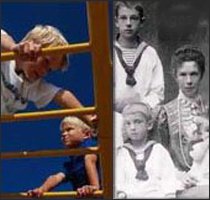 Sit Back for a Fascinating Journey into the Psychology of Children - From the Grand Masters' Fixation with Development Stages to the Context Focus of Today! |
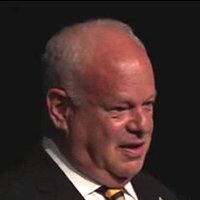 Martin Seligman: The Critic of Traditional Psychology and Father of Positive Psychology |
Back to the top of this page about Positive Psychology Theory and Positive Parenting: Why It Works and Makes Us Happy
Go to the Positive Parenting Ally Homepage







